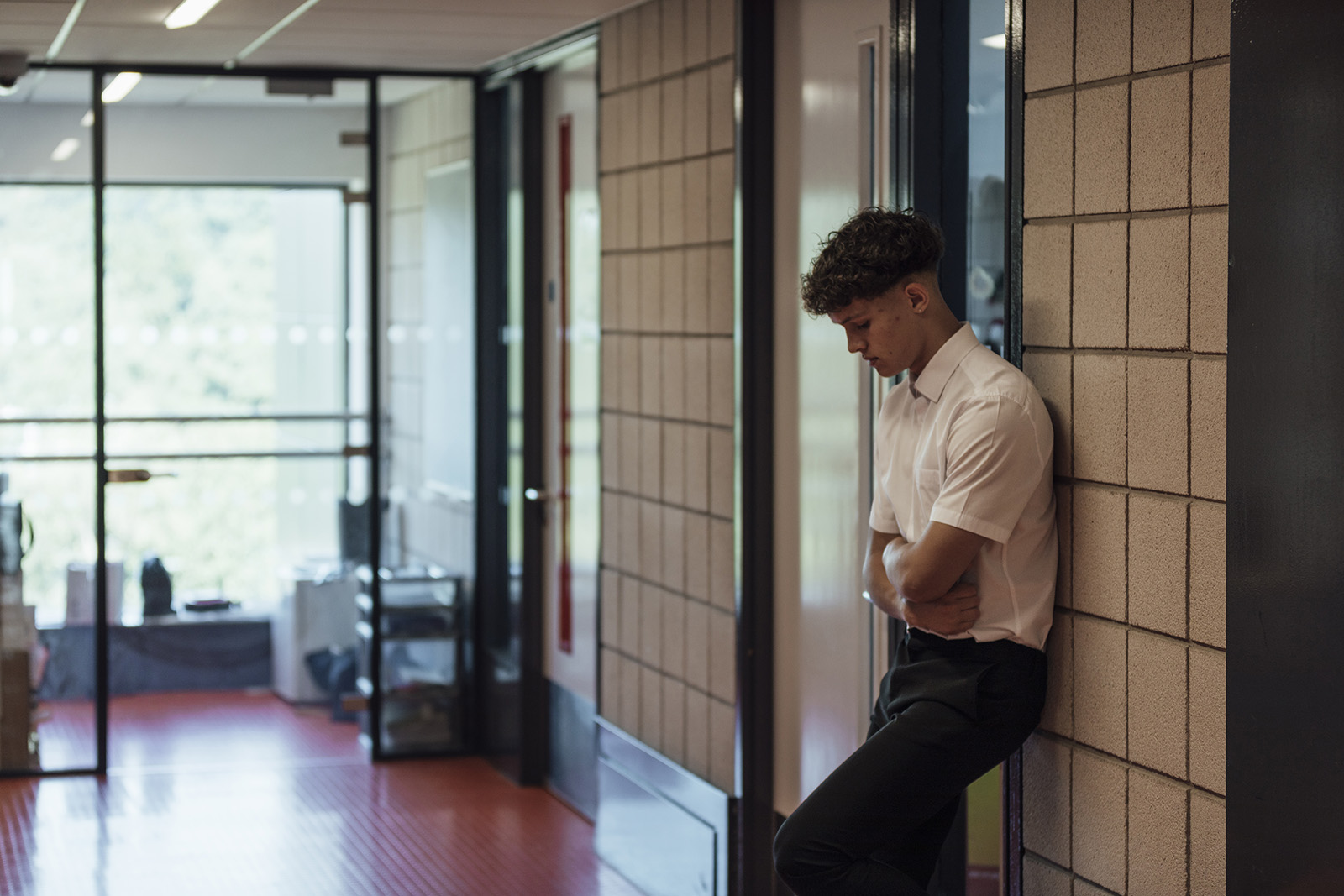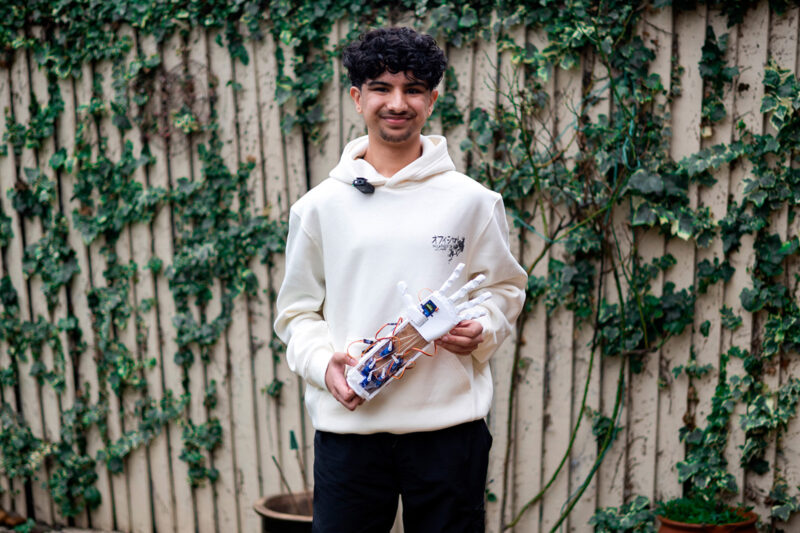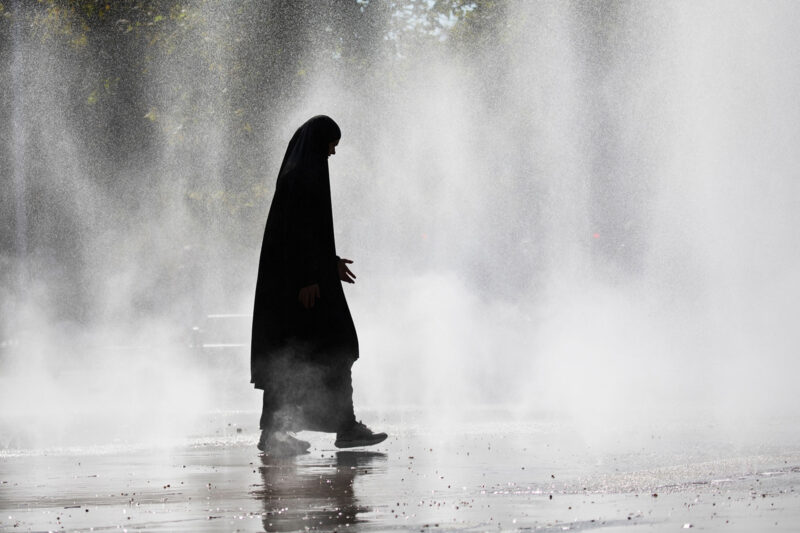As a teacher, I’ve seen behaviour policies become more punitive – and it’s the most vulnerable who are targeted
As pupil exclusion rates soar, it feels like the life chances of disadvantaged students are being cast aside in favour of reputation

I’m not supposed to admit it, but as a teacher, I don’t particularly care about the colour of a student’s socks, the style of their hair or how straight their back is when sitting in my classroom. I don’t even mind lending a pupil a pen when they’ve genuinely forgotten theirs.
Yet, like many teachers up and down the country, I’m finding myself having to penalise these things more and more — even if we’d rather be focusing on what inspired us to enter the profession in the first place: educating and nurturing the next generation, and giving disadvantaged children a chance, something society often doesn’t.
The start of this academic year brought with it news that school exclusions have risen by a fifth over the last 12 months, according to a report by the Institute for Public Policy Research (IPPR). It’s little wonder we have seen the rates of permanent and temporary exclusions skyrocket year on year over the last decade when zero tolerance has become the norm in our places of learning.
This is pushing more children outside mainstream schools into privately run alternatives where they are “too often let down” in systems that don’t guarantee safety and quality, the IPPR report found.
Though tragic, the rise in school exclusions isn’t surprising. Instead of sites of support, creativity and tolerance, British schools have gradually succumbed to disproportionate approaches to managing pupils’ behaviour, including isolating students for minor infractions like a logo on a coat or having the wrong sort of pencil case. It’s part of a system damaged by the hangovers of a Blairite appetite for school improvement driven by so-called “superheads” instead of the state, followed by mass academisation under Michael Gove as education secretary from 2010, and the government’s programme of austerity, coinciding to leave schools on their knees.
Over the last eight years I’ve spent as a teacher, I have witnessed behaviour systems become increasingly more punitive: from enforced eye contact to silent corridors. The result is that children are taught from a young age that their agency and voice don’t matter and that the only route to social mobility is in blindly following orders — no matter how archaic they are.
This has only been exacerbated by a culture within education regulator Ofsted, which rewards schools adopting such policies with the highest report card results. Michaela community school in Wembley, for example, which routinely places pupils in isolation if their parents accrue debt on their lunch money, bans Muslim children from prayer at lunchtime and gives detentions for crimes like looking out the window, has been awarded successive Outstanding judgments, including for pupil welfare.
The impact of these harsh environments has huge consequences for the children — 65% of the adult male prison population was excluded from school at some point — and the troubling truth is that some young people are simply more likely to be excluded than others. Racial and class bias has been institutionalised. I’ve sat in a room while senior teachers made comments about Muslim boys “not responding to female teachers” because “they have no respect for women in their culture”.
Pupils from ethnic minority backgrounds are up to four times more likely to get kicked out of mainstream school. Black Caribbean students and pupils of mixed Black and white heritage are twice as likely to be moved to an alternative provision like a pupil referral unit; Gypsy, Roma and Irish Traveller students four times as likely. Meanwhile, children in poverty are consistently the most likely to be excluded — a reality that has been compounded by the legacy of both the pandemic and austerity.
When such inequalities persist, zero tolerance is far from the harmless establishing of boundaries. From the inside, watching the rates of exclusions sky-rocket around me feels like the life chances of my most vulnerable students are being cast aside in favour of rapid improvement and reputation. It is at odds with everything I am in the job for.
The new Labour government has vowed to phase out “cruel” behaviour rules and instead focus on the root causes of exclusions, particularly for vulnerable students. Plans include scaling back on the use of isolation booths within schools, banning teachers from repeatedly suspending students with special educational needs and prohibiting leaders from telling parents their children would be better off at a school with less rigid standards.
Labour’s focus on eradicating the root causes of rising exclusions sounds promising, but tackling this problem needs systemic change that transcends the boundaries of the school gate. As much as I welcome the end of draconian behaviour policies, curbing exclusions is about more than simply banning cruel rules — ultimately, it comes down to two things: enough funding and reversing the impacts of austerity.
This means prioritising making teaching appealing as a lifelong profession by addressing pay and workload, so that experienced practitioners can give students the stability and support they need to get the most out of lessons. Designated wellbeing staff should be placed in every school, to step in before pupils get to the point of being repeatedly excluded, and the role of teaching assistants should be bolstered so that children with special educational needs and disabilities are better supported.
However, this must go hand in hand with improving the external conditions that make children more likely to be excluded in the first place — and Labour reversing its commitment to austerity policies like the bedroom tax and two-child benefit cap (which trap thousands of families in cycles of poverty) would be a good place to start if this new government wants to prove its commitment to long-term change.
 Newsletter
Newsletter













